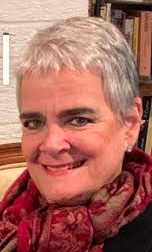
Dr. Josefina Alberú
Head (Emeritus), Department of Transplantation, Instituto Nacional de Ciencias Médicas y Nutrición Salvador Zubirán (INCMNSZ), Mexico City.
Professor of Medicine, Instituto Tecnológico de Monterrey, Mexico City Campus, and at Universidad Panamericana, Mexico City.
Honorary Member, American Surgical Association
Josefina Alberú graduated from medical school at the Universidad Autónoma de Guadalajara, México, with the highest honors in her generation. After two years of training in Experimental Surgery she completed her residency in Internal Medicine, General Surgery, and a Fellowship in Transplantation Surgery at her alma mater, the Instituto Nacional de Ciencias Médicas y Nutrición Salvador Zubirán (INCMNSZ). The INCMNSZ, a public institution par excellence, has most certainly provided the best standards of patient care, and teaching in many areas of Internal Medicine, Surgery and Research for the past 75 years in México. She was staff member of the Transplantation Department at the INCMNSZ in Mexico City since 1989 to December 2018, and Head of the foregoing Department from 1995 to May 2012. She took particular pride in having had the opportunity to train numerous residents in kidney transplant surgery with ethical practices in transplantation central to education efforts in this area, and the conviction that there is an urgent need to have enough transplant surgeons to cover the demand in the 32 states of the Mexican Republic.
She is member of the Mexican Council of General Surgery, the National Academy of Medicine, the Mexican Society of Transplantation, (President for the 2018-2019 term), the Latin American and Caribbean Society of Transplantation, the American Society of Transplantation and the International Society of Transplantation. She belongs to the National System of Investigators, level 3. Her fields of investigation are varied and include the clinical and epidemiological aspects of renal transplantation, receiving funds from the National Council on Science and Technology. During her professional career she has authored more than 170 articles and has contributed in the writing of more than 20 books about renal transplantation.
Generation and expansion of functionally stable allospecific Tregs for immunotherapy in human kidney transplantation
Josefina Alberu1, Evelyn Alvarez-Salazar2, Arimelek Cortés-Hernández2, Saúl Arteaga-Cruz2, Katya Rosas-Cortina2, Abril Saint Martin2, Luis E. Morales-Buenrostro3, Gloria Soldevila2, Josefina Alberú1.
1School of Medicine, Instituto Tecnológico de Monterrey, Ciudad de Mexico, , Mexico; 2Department of Immunology, Institute for Biomedical Research and National Laboratory of Flow Cytometr, UNAM, Ciudad de Mexico, , Mexico; 3Department of Nephrology, Instituto Nacional de Ciencias Medicas y Nutrición SZ, Ciudad de Mexico, , Mexico
Pronace Fordecyt #302815 from CONACyT.
Although growing evidence demonstrates the feasibility of using allospecific T reg-based immunotherapy for transplantation tolerance, there is still little knowledge about Treg long term stability and functionality in vivo. Our group has established several methods for generating large numbers of allospecific tTregs, iTregs and Tr1, which preserve their suppressive phenotype and function in the presence of pro-inflammatory cytokines. Allo- tTregs, iTregs or Tr1 were obtained after in vitro stimulation with allogeneic monocyte-derived DCs or DC10 (for Tr1), they were FACS-sorted to a purity higher ≈90% and then, polyclonally expanded for 4-6 weeks. For thymic Tregs, alloTregs were expanded up to 2,300 times the initial numbers with a purity of >95% (CD4+CD25hiFOXP3+). The resulting allospecific Tregs showed high expression of CTLA-4, LAG-3, and CD39. Expanded thymic alloTregs efficiently suppressed T-cell proliferation in an antigen-specific manner, even in the presence of IFN-γ, IL-4, IL-6, or TNF-α. In the case of alloantigen-induced Foxp3+ Tregs, they were also polyclonally expanded for 6 weeks in the presence of TGF-β1, IL-2, and rapamycin, giving rise to 4,600 million Tregs (230,000 x). Finally, Tr1 cells CD49b+ LAG-3+ (≈80%), where generated, which produced high levels of IL-10 (≈90%) and expressed co-inhibitory receptors (PD-1, CTLA-4, TIM-3, TIGIT, CD39), as well as chemokine receptors CCR2, CCR4 and CXCR3. Most importantly tTregs, iTregs and Tr1 specifically suppressed allospecific, but not third party, T cell proliferation, in the presence of pro-inflammatory cytokines. Our data indicate that expanded-allo-Tregs are stable and express relevant chemokine receptors, suggestive of their potential homing to the kidney allograft.
Work was supported by Grants #272815. CONACYT. Mexico.

right-click to download
